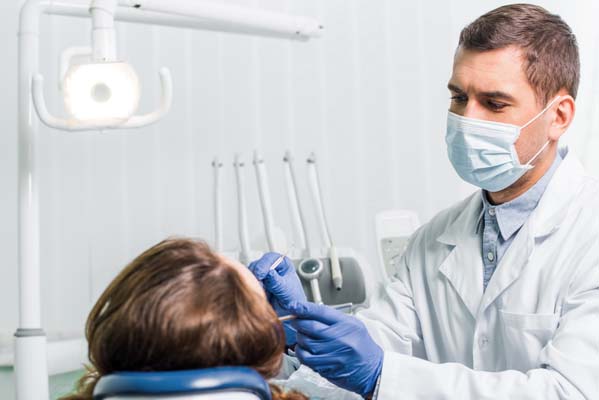Restorative Dentistry Options for a Broken Tooth

Restorative dentistry has a handful of ways to go about restoring a broken tooth. It typically comes down to how severely damaged the patient’s tooth is. Restorative dentistry focuses mainly on restoring the function of teeth that have been damaged. Doing so typically improves the way the tooth looks as well.
Ways restorative dentistry addresses a broken tooth
Here are some of the ways a dentist might opt to restore a broken tooth so you regain its lost function:
1. Composite bonding
This is a non-invasive, affordable treatment that is often used to fix mild to moderate breaks. It involves using a composite that is made from mixtures of plastic and glass to repair damage to a tooth’s structure. The composite is matched with the color of the person’s teeth so repairs made look natural.
Composite bonding takes about an hour to complete and it restores the damaged tooth during a single visit. There is no need to make any permanent alterations to the tooth being treated before applying the composite to it. The dentist simply roughens it with an etching solution and applies the composite in layers. It is hardened with ultraviolet light and polished to finish the treatment.
2. Veneers
Mild to moderate breaks that mainly affect the front part of a tooth can be fixed with veneers. These are tooth-shaped restorations that are cemented to the front part of the teeth. They hide flaws and the tooth and serve as artificial enamel.
Getting veneers placed on teeth typically requires multiple trips to the dentist. Conventional veneers require the removal of some enamel from the front part of the tooth, but no-prep veneers can be used without altering the tooth.
3. Crowns
Crowns are typically recommended for moderate to severe breaks. The crown covers the part of the tooth that is visible above the gum line, protecting it from further damage and restoring its appearance. Placing a crown on a tooth requires shaving enamel off it to create a better fit for the crown. The process cannot be reversed, so the tooth will always need a restoration to serve as its enamel. Getting a crown usually requires two trips to the dentist. It provides a long-lasting solution for a broken tooth that can last for over 25 years.
4. Root canals
Dentists often have to perform this procedure when a tooth has been badly damaged. It involves removing soft tissues from the pulp chamber. Severe damage to a tooth typically opens this area up, leaving the tooth vulnerable to infection. Cleaning out the contents of the pulp chamber helps to prevent this. Teeth that have been restored with a root canal are often covered with crowns to protect them.
5. Extraction
If other options are not viable due to the damage extending below the gum line, the dentist might recommend extraction. The extracted tooth can be replaced with prosthetics like dental implants.
Restore your broken tooth
Call or visit our Chicago clinic to explore your options if you have one or more broken teeth.
Request an appointment here: https://smilestudiochicago.com or call West Loop Smile Studio at (312) 248-7416 for an appointment in our Chicago office.
Check out what others are saying about our dental services on Yelp: Restorative Dentistry in Chicago, IL.
Related Posts
If you have an early-stage cavity or even more serious damage to your tooth, dental restoration options can help you keep your teeth strong and healthy by reinforcing the protective layer of your tooth enamel, helping it rebuild its structural strength over time. While many dental restoration options can be used in conjunction with one another,…
Your smile is often one of the first things that other people notice about you. A smile makeover offers an effective way for you to transform it into the one you can proudly show off. This treatment process provides multiple benefits, from correcting minor cosmetic issues to a complete overhaul. Here are five reasons to…
Practicing preventive dentistry at home allows you to reap many benefits for your general health. Brushing and flossing every day is a basic way of keeping your mouth in good shape. Having healthy teeth and gums helps support your whole body’s health. If you want to find out why good everyday dental hygiene is important…
A preventive dentist can protect your mouth from different ailments. This dental care professional can perform treatments that can keep your teeth and gums healthy. Regular visits can ward off serious dental problems later on. Here are the details about visiting a preventive dentist for good oral health.The main goal of this field is to…
